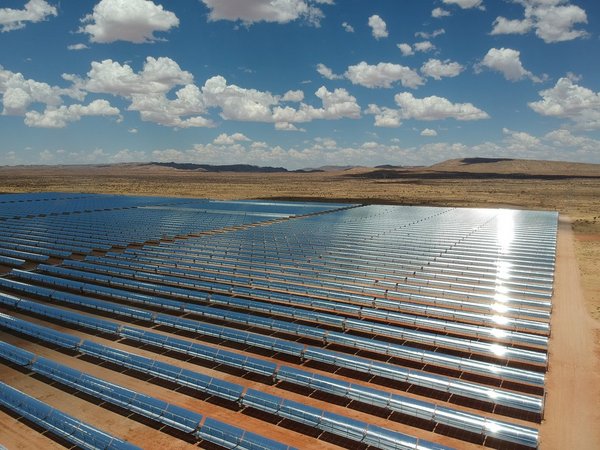 Read this article in French
Read this article in French- Share this article
- Subscribe to our newsletter
Africa’s green future
Dependence on coal and gas could be overcome in Africa first, researchers from the University of Tübingen, the Senckenberg Society for Nature Research and the University of Osnabrück, all in Germany, as well as the University of Rwanda said in January 2023. According to their research 80 per cent of the energy required in Africa could come from renewable sources by 2040 – if the capacity of existing power plants were fully utilised and all the plants currently on the drawing-board were built.
“There is enough sun, wind and water on the continent. Many African countries could skip the age of fossil fuels. But of course, a few things would have to be done to achieve that,” says Rebecca Peters, doctoral scientist in the Geosciences Department at the University of Tübingen.
Sharply falling production costs for solar and wind energy are enabling a major expansion of renewable energies in Africa. However, the continent’s energy requirements are expected to increase considerably in the coming decades. Two-thirds of the population currently has no access to electricity and the current population growth of 2.6 per cent in sub-Saharan Africa is higher than in other parts of the world.
Solar and wind power plants can be operated in a decentralised manner and in local grids without being connected to overhead power lines; the authors point out that this is one of the advantages of renewable energy sources. By this analysis, a large-scale expansion of the electricity grid to rural areas would be expensive and unnecessary. And there is further potential for higher energy production in Africa in the smooth operation of existing power plants, lower energy losses during electricity transmission and a suitable combination of different forms of energy to compensate for fluctuations in solar and wind energy production.
“We are, however, sceptical about the unchecked expansion of hydroelectricity,” explains Professor Klement Tockner, Director General of the Senckenberg Nature Research Society. “Although Africa is the continent with the world’s least exploited reserves of this form of energy and hydropower currently accounts for 63 per cent of renewable energy production, a great expansion of dams and lakes would irreversibly change the currently free-flowing rivers and would also force many residents to relocate,” Prof. Tockner says.
The sustainable scenario for universal access to renewable electricity in Africa requires that countries heavily dependent on coal – such as South Africa, or gas – such as Algeria, Tunisia and Libya – give up future expansion of coal and gas-fired power plants and transition to clean energy generation. “Structural change is only possible by doubling current investments by 2030 and investing an additional 30 billion dollars a year to ensure access to electricity for all,” says Dr Jürgen Berlekamp from the Institute of Environmental Systems Research at the University of Osnabrück. Investments from abroad would be needed, he adds. Since the noughties, China has played an increasingly important role alongside the USA and European countries.
(University of Tübingen/ile)
Read more on the website of the University of Tübingen





Add a comment
Be the First to Comment